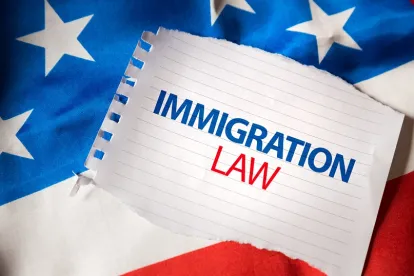The federal government’s practice of designating individuals born in American Samoa as “noncitizen nationals” is unconstitutional, U.S. District Judge Clark Waddoups has ruled. Fitisemanu et al. v. U.S., No. 1:18-cv-00036-CW (D. Utah Dec. 12, 2019). Judge Waddoups has directed the government to recognize the citizenship of individuals born in American Samoa.
U.S. Citizenship can be either acquired at birth or after birth.
It is acquired at birth if a person is:
-
Born in the U.S. or certain territories within the jurisdiction of the U.S.; or
-
Born abroad to a parent or parents who were citizens at the time of the person’s birth.
After birth, citizenship is either:
-
Derived or acquired through U.S. citizen parents by simply applying for citizenship; or
-
Acquired through the naturalization process.
Often the terms “citizen” and “national” are used interchangeably – but they are not synonymous. While all U.S. citizens are U.S. nationals, a U.S. national is not necessarily a U.S. citizen. A person who is only a U.S. national:
-
Has the irrevocable right to remain in the United States or its territories;
-
Is entitled to a U.S. passport, but the passport will identify the individual as a national, not a citizen;
-
Is entitled to consular protection abroad;
-
May apply for naturalization after three months of residency;
-
May not vote in federal elections;
-
May not hold a federal elected office; and
-
May not be eligible for certain jobs that require U.S. citizenship.
This differs from legal permanent residence (“green card” status), because U.S.-national status is irrevocable while green card status is revocable. Another difference is that permanent residents generally must wait three to five years before they can apply for citizenship through the naturalization process while U.S. nationals only have to wait three months.
Currently, there are not many groups of people who are U.S. nationals. Puerto Rico, the U.S. Virgin Islands, and Guam started granting birthright citizenship in 1917, 1927, and 1952, respectively. Individuals born in American Samoa, however, are U.S. nationals and are not entitled to birthright citizenship. In Fitisemanu, Judge Waddoups ruled that three residents of Utah who were born in American Samoa were birthright American citizens.
Judge Waddoups ruled that individuals born in American Samoa were “subject to the jurisdiction” of the U.S. and should be entitled to birthright citizenship. He held that the section of the Immigration and Nationality Act (INA) declaring these residents to be only U.S. nationals was unconstitutional under the 14th Amendment.
This is not the first time that this issue has come to the federal courts. In 2015, the D.C. Circuit came to the opposite conclusion and the Supreme Court refused to review the case. If the 10th Circuit (which has jurisdiction over Utah) upholds Judge Waddoups opinion, that will set up a split in the circuits that might well lead to review by the U.S. Supreme Court. Judge Waddoups has stayed his ruling until the case can be appealed.
The government of American Samoa opposed the grant of birthright citizenship in court, arguing it threatens their traditional culture and deprives Samoans the ability to decide about their own status – since, even before this recent ruling, they could apply for U.S. citizenship.




 />i
/>i


